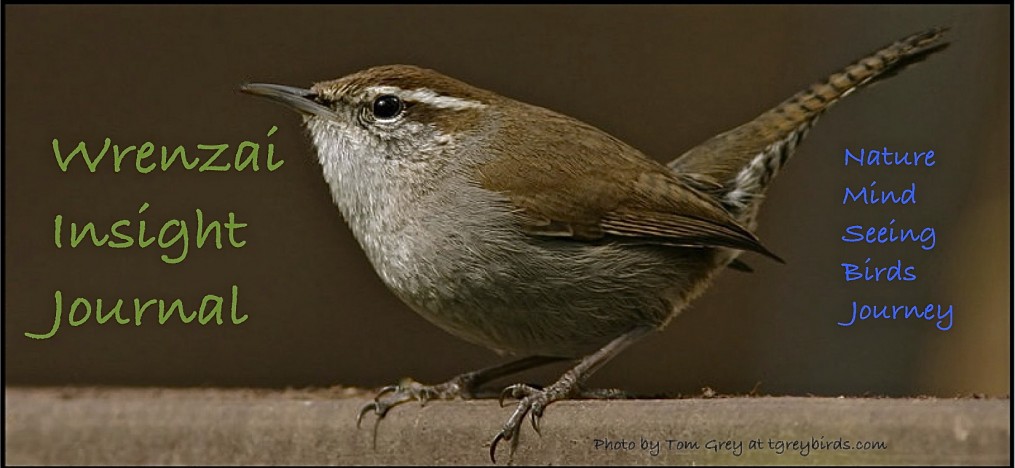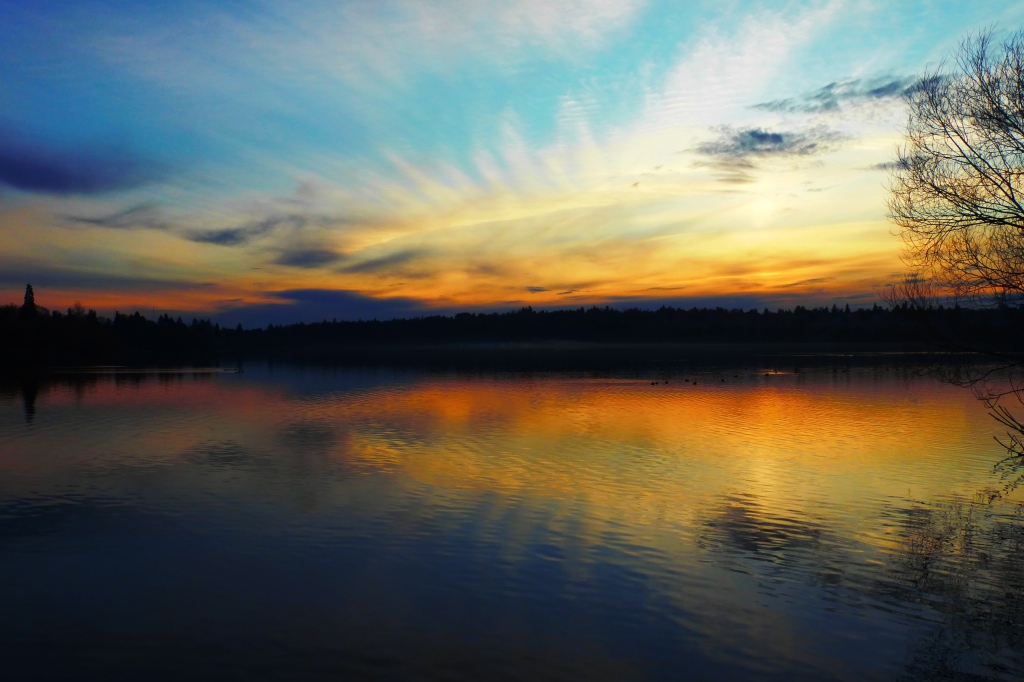Recently, longtime friend and colleague Priscilla Long gave a talk on Aging and Creativity at Elliott Bay Bookstore, which got me to thinking about the subject as it relates to my own life. Following are some miscellaneous thoughts that came to me rather briskly after I watched the video of her talk. The video can be viewed at:
http://www.priscillalong.net/talk-on-aging-and-creativity/
To begin with, I’m so impassioned and engrossed as an artist that I’ve hardly ever given thought to my creativity in relation to my aging. I give more and more time and energy to my writing projects and pursuits along with ever-greater effort toward playing the violin more beautifully (the physical activity of the latter seems to sustain the mental activity of the former). I feel full of potential, imbued with purpose and meaning, and rewarded by ever-stronger messages of confidence and satisfaction. I’ve noticed no lapse in my personal successes, my voice, my innovation, or my overall productivity. I never have doubts, tremulousness, or even hesitation in taking up my pen or bow. Although occasionally I feel a little dry, particularly with my haiku writing, I never have writer’s block. The only question I have is this: How much more time can I squeeze out of the time I have left on Earth to do what I love, the work that, in turn, seems so much to sustain me, to enrich me, and perhaps even to extend my life? So-called “retirement,” for me, has turned out to be my greatest opportunity to have a full-time writing career.

Cooper’s (chicken) hawk, Green Lake, Seattle
I can remember thinking, once I’d set out on the path of writing poetry at age 39, that I’d better get as much down on paper as I can now, before I grow old and “dry up.” That way I’ll have built an archive of material to work up with my “drier,” more editorial mind later. The operative stereotype, then, was that with aging comes creative desiccation. This stereotype is supported by the common expression “creative juices,” the idea that, as we age, our creative juices dry up. Many people have this idea that aging, in general, means “drying up.”
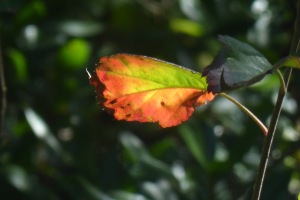
First autumn leaf, Ocean Shores, WA
Another idea, a more positive one, is that if along the way I somehow concluded I wasn’t very creative, that is, not very imaginative or innovative, then it was only by facing that question with sincerity and openness that I set out on a path to become more successfully imaginative and innovative. In other words, I had to ask myself, what does it mean to be creative in the first place, and what makes a work imaginative or innovative? I’ve encountered many significant questions along this line since I set out on this path: I wondered if by being more concerned with clarity and reality in my writing that I was being less creative. I wondered if by being more vernacular in my style I was being less creative. I wondered if by not relying on figures of speech and prosodic devices I was being less creative. Worst of all, I wondered if by not imbibing in drugs and alcohol or other sense-deranging approaches to the creative process I was being less creative.

Great blue heron, Green Lake
The irony is that, as I’ve come to understand what it is to be creative, to understand what makes a work more imaginative or innovative, the more imaginative and innovative I’ve become. Considering that I didn’t get serious about playing violin until I was 28 and didn’t get serious about writing poetry until I was 39, most of the creative enlightenment that has occurred in my life has occurred in my forties, fifties, and sixties. I have to say that at sixty-six I’m only now in the throes of producing my richest, most structurally creative, most humanistically purposeful work of writing: In Search of Morris: The Ancestry Research Writing How-to Memoir. And my sentence writing at this “late date,” is, indeed, like greased lightning—sinuous, leaping, soaring, delving, poetic, multi-textured, and musical. Of course it helps that I’m spry, if not still athletic and agile, in body. Keeping the body young, I believe, helps keep the mind young.

Leaf in spider web, Ocean Shores
The book, in 1992, that helped me address what being more creative in my poetry writing entailed is Leaping Poetry, by Robert Bly. I read this book when I was 40. The idea that I took from that book that was so helpful is that there is a sideways leaping of imagination, rather than a linear one, involved in bringing together surprising words and images. Another book that helped was Richard Hugo’s Triggering Town, the idea that we need to expose our selves to word-stirring places, people, and stories to excite poetic responses and deeply human stories in ourselves. In other words, rather than lying down and dying by thinking I’m not naturally creative, I dove deeply into the question of what creativity is and how it works and, in turn, opened the way to being more imaginative and innovative. And I did a lot of this work starting when I was 45, when I got interested in Zen poetry in translation. Zen has played a huge role in my life in seeing how my thoughts were in my way.

Grass shadows on fallen leaf, Green Lake
A lot of the stereotypes and blocks that prevent or slow us from being creative, from continuing to be creative, or from becoming all the more creative as we age, involve the tiny, confining boxes and bubbles with which we close ourselves up: I’m too old. I’m too stuck in my ways. I’m not creative. My creativity will dry up. I have no imagination. It’s all been said before. I’ll never write as well as so and so. I’ll never write as well as I wrote when I was 25. I get frustrated too easily. I’m lazy…. And one doesn’t have to be old to close oneself up in these little boxes and bubbles. As a college writing instructor of many years, I’ve heard the same kinds of excuses and justifications expressed by people in their teens, twenties, and thirties. I wonder how many of us defeat ourselves even before we’ve stepped into the game or the battle.

Autumn lily pads, Green Lake
This brings up that greatest of all psycho-spiritual issues: How can we come to believe in ourselves? Maybe it takes the better part of one’s life to come to believe in one’s self. Young people who appear to believe in themselves may only be ebullient—putting on the dog, so to speak. Not that feigned confidence doesn’t work. Feigned confidence may, indeed, result in authentic confidence. In any case, as we age it’s possible we can begin to see that we’re still hugely full of potential that we never even began to fulfill and that it’s just a matter of setting our minds to doing so. We are not predetermined by the stars, our genes, our parents, or even by a certain past lifestyle or life mistake. We can erase the chalkboard if we choose to do so and pick a new color of chalk—a lot of new colors, if we like.

Autumn hummingbird, Green Lake
In fact, “artists of age” may have the edge over youthful artists simply by dint of the fact that they’ve had more time to get to know themselves—as people and as artists. They may also be imbued with that beautiful energy known as “having nothing left to lose.” Young artists, ironically, may actually be more conservative and less willing to take chances. They may also be too concerned about the reception of their work by the public since they tend to be new to the game of peer pressure and the Jones effect.
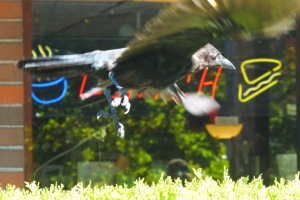
Coffee shop crow, Green Lake
Finally, having lived more years, more decades, the older creator or artist has the abundance of his or her entire long life from which to draw stories, images, memories, landscapes, characters, wisdom, and insights. And the memories that stick and continue to recur are those that have floated to the surface as the most poignant or meaningful. There are not that many young artists who have seen through to the heart of life and can write that life deeply and beautifully. However, there are some who seem to be born with gifts of human understanding and linguistic sensibility. Yet there’s no evidence that they lose that ability as they enter their forties, fifties, or sixties.

Helming the green sea home, Ocean Shores
As for continuing to strive to improve at playing violin: I was stuck at intermediate level from age 28 to about age 55. Not only had I quit playing for 14 years prior to that, from age 14 to age 28, but I had a foolish self-inflicted accident at age 23 in which I severely yanked both my shoulder joints out of their sockets so my arms dangled numbly and uselessly at my sides. So at age 55 I began working harder at increasing the range, fullness, speed, and facility of my bowing arm until I developed tendonitis and bursitis in the shoulder. I saw a therapist who had me take Ibuprofen routinely and work out with elastic bands in order to strengthen my shoulder. Meanwhile, I continued to practice violin while trying all the more carefully to play in a gentler and lighter way. At the end of nine months, at the age of 56, the tendonitis and bursitis had subsided, my shoulder had strengthened, and my bowing range, power, and speed had increased considerably.

Sibling retreat barred owl, Ocean Shores
Then, at age 56, I set out to strengthen my left shoulder in the same manner. I began by trying harder to support the instrument in such a way that I could finger and vibrate with greater facility and power until, again, I developed tendonitis and bursitis in the shoulder. And again I began with the Ibuprofen and the elastic band therapy while continuing to play in a more gentle and light way. In a year my left shoulder had strengthened such that I could finger more freely, speedily, and powerfully and without any pain whatsoever.

Heron silhouette, Green Lake
I am a 100% believer in the idea that “if you don’t use it you’ll lose it.” At age 23 I injured myself and didn’t do any healing therapy but then underwent the needed therapy in my mid-fifties and was still able to heal the injuries. The body, like the mind, is infinitely more resilient as we age than we tend to think. And as my body has grown more facile with the instrument so my mind has grown more facile with the music making. The body was no longer an impediment to the mind, the artistic sensibilities. I’m also a believer in the idea that the body supports the mind at least as much as the mind supports the body.
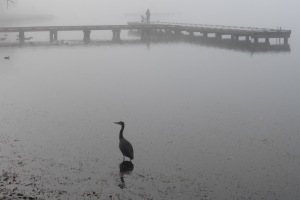
Heron and dock fisherman, Green Lake
More broadly speaking, creativity is a big part of my spirituality (in the secular sense to the word spirituality). Art and spirituality for me are synonymous. Throw in Nature and Mind and you have the basic outline of my personal spirituality. It wasn’t until I was well into my forties before I had a stable working philosophy. Only with age, I believe, can a person evolve a truly authentic, experientially derived spirituality or working philosophy, and it’s my belief that a truly mature art must be informed by a mature, worldly philosophy.
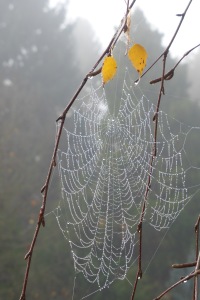
Autumn dew spider web, Green Lake
Then there’s the matter of distractions. I find that as I grow older I manage my time better and can concentrate for longer periods of time. I’m not as attracted to everything that’s going on around me, as I was when I was a younger, wilder person. I didn’t want to miss anything when I was younger. By now I’ve seen and done so many things that I’m not drawn to them anymore. Also, I’ve learned to make better use of my thinking mind. I used to think more in abstractions, sensations, and images. Now, not only can I think in these earlier ways, I can think in solid sentences or dialogue when appropriate. I can write in my mind and remember what I wrote, although I always keep my voice recorder near to hand for when I need to remember longer chunks of material or when I want to capture my authentic voice. I’ve written many a good haiku in my mind.
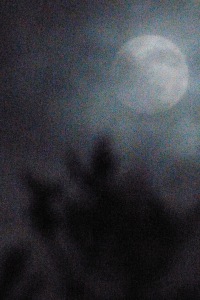
Misty night full cold moon, Ocean Shores
There is nothing I’ve described or explained here that I experienced or thought of in my early twenties. Most of these thoughts, developments, and approaches I’ve come to realize or have evolved in my forties or later. If life can be an adventure, then I’ve certainly had an interesting and exciting one since I set out to write beautifully and to redeem my violin body and sound. Maintaining a day job as an educator has been fulfilling, but I’ve kept the day job to support the night job, in order to more deeply educate myself in the ways of art making and to enrich the spirit. If I’ve been a successful educator at the college, then it’s because I’ve persisted in educating myself in these challenging and deeply fulfilling ways and sharing the adventure, the spirit of the adventure, with my students.
Copyright 2018 by Rick Clark

